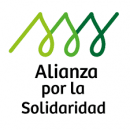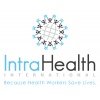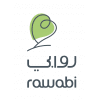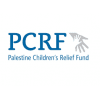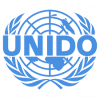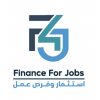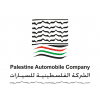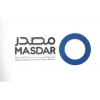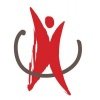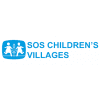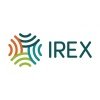Disability Study

Consultant or Consultancy firm to Conduct a Disability Study in Gaza
Project Name: “Integrated protection and promotion of the rights of women and girls affected by SGBV in the context of the humanitarian crisis in Gaza”
Table of contents
- Introduction.. 1
- Background.. 1
- Objective.. 2
- Scope of Work. 3
- Methodology. 3
- Relevant Legal, Policy and Operational Instruments and Tools. 3
- Required Qualifications and Experience.. 4
- Deliverables. 4
- Timeframe.. 4
- Ethical Considerations. 5
- Submission of Offers. 5
1. Introduction
Alianza por la Solidaridad-ActionAid Spain (Alianza-AA SP) is a feminist, non-governmental, non-denominational and independent organization founded in Spain in 1986, and which has been present in the occupied Palestinian territory (OPT) since 1993.
Since 2018, the organization has been a member of ActionAid (AA) International, a global federation working with more than 41 million people in over 70 countries towards a just, fair, and sustainable world in which everybody enjoys the right to a life of dignity and freedom from poverty and oppression. AA works to achieve social justice and gender equality, and to eradicate poverty.
Hand in hand with its Palestinian civil society partners, and in line with its 2020-2026 Strategic Plan, the promotion and defence of women’s rights and gender equality lie at the heart of Alianza-AA SP’s work in the West Bank and Gaza Strip. Concretely, its development cooperation and humanitarian programs seek to prevent, respond to and mitigate Gender-Based Violence (GBV) and to ensure women’s civil, political, social and economic rights.
Since October 2023, together with its sister organization, ActionAid Palestine and AA’s International Humanitarian Action and Resilience Team (IHART), Alianza-AA SP has launched a response to the humanitarian emergency in the West Bank and Gaza Strip, centered on supporting partner organizations to sustain and expand critical basic needs, protection, health and livelihoods services and assistance. This response has a cross-cutting focus on inclusive, accessible and adapted assistance, support and services for persons with disabilities, with a special focus on women and girls with disabilities and GBV survivors in particular, to ensure their sexual and reproductive rights and right to protection.
2. Background
The current emergency in the Gaza Strip - coming on top of an existing chronic humanitarian crisis - has resulted in massive devastation, causing injuries and long-term disabilities among civilians, including children, women, and the elderly. The destruction of infrastructure, healthcare facilities, and essential services has further exacerbated the challenges faced by persons with disabilities.
As a consequence of the war, the number of individuals requiring rehabilitation services and assistive equipment has drastically increased. Many survivors have sustained life-altering physical injuries, such as amputations, spinal cord injuries, and visual and hearing impairments, leading to an urgent need for medical support, prosthetics, and mobility aids. At the same time, the grave emotional and psychological traumas suffered by the population will require continued psychosocial support.
Since 07/10/2023, the percentage of the Palestinian population in Gaza with disabilities (physical, sensory, psychosocial, and intellectual) has reportedly skyrocketed from 6.8% to 37%, according to the Disability Working Group. This is more than double the global rate of 15% and may be the highest level of disability caused by any war in contemporary history.
These unprecedented levels of disability are related to the nature and sheer scale of weaponry used by the Israeli military; the targeting of densely populated civilian areas; the collapse of the health system; the use of hunger and thirst as a weapon of war; and the huge levels of psychosocial distress and trauma affecting the Gazan population.
A wealth of evidence exists to visibilize the fact that the experience of humanitarian crises by the people affected is strongly shaped by a series of factors including gender, age, disability, race, and class, among others. In Gaza, the intersecting factors of gender and disability mean that women and girls with disabilities are affected disproportionately and are exposed to very specific vulnerabilities and threats. For example, women and girls with disabilities face heightened vulnerability to sexual assault, sexually transmitted infections, and forced healthcare practices, such as abortion, because of limited access to sexual and reproductive health services.
There have also been reports of sexual violence in overcrowded shelters and during detainment. Pregnant women are struggling to access healthcare facilities, with many giving birth without anaesthetics or other needed medications. Finally, women with disabilities in the Gaza Strip are four times more likely to experience intimate partner violence than other women.[1]
3. Objective
In the context outlined above, and in the framework of a project funded by the Agencia Española de Cooperación Internacional para el Desarrollo (AECID) in 2023, entitled “Integrated protection and promotion of the rights of women and girls affected by SGBV in the context of the humanitarian crisis in Gaza”, currently being implemented with Al Awda Health and Community Association (Awda) and the Culture and Free Thought Association (CFTA), Alianza-AA SP wishes to commission a study to understand and dimension the scale of disability affecting women and girls in the Gaza Strip, particularly in relation to access to sexual and reproductive health (SRH) and gender-based violence (GBV) services.
Specifically, the study aims to:
- Assess the scale and current challenges faced by women and adolescent girls with disabilities in accessing inclusive SRH and GBV services, identifying cultural, infrastructural, and policy-related barriers.
- Evaluate the adequacy and inclusiveness of existing GBV prevention and response services.
- Provide actionable recommendations for ensuring that SRH and GBV services are disability-inclusive and accessible to women and girls with mobility, sensory, or cognitive impairments.
4. Scope of Work
The consultant will ensure that data collection and analysis incorporate a gender and disability lens, recognizing the compounded discrimination faced by women with disabilities. This includes:
- Assessing how current SRH services accommodate (or fail to accommodate) the needs of women and adolescent girls with disabilities, from the perspectives of women and girls with disabilities, caregivers, SRH service providers, and other key stakeholders.
- Evaluating the accessibility and inclusiveness of multi-sectoral GBV prevention and response mechanisms.
- Analyzing community perceptions of women and girls with disabilities and their access to essential services.
- Providing actionable, disaggregated recommendations to improve access to SRH and GBV services, including by type of disability, age, and geographical location.
5. Methodology
- Primary Data Collection: Conduct interviews, focus group discussions, and surveys with women and girls with disabilities, using trauma-informed, accessible, and inclusive methodologies. Ensure confidentiality and informed consent.
- Secondary Data Review: Review existing reports, policies, and statistical data from local and international sources.
- Stakeholder Consultation: Hold consultations with SRH and GBV service providers, CBOs, camp and shelter committees, disability actors, UN agencies, and relevant humanitarian coordination bodies.
6. Relevant Legal, Policy and Operational Instruments and Tools
The content of the study to be designed should be in line with the following relevant legal and policy instruments:
- Convention on the Rights of Persons with Disabilities[2]
- Convention on the Elimination of All Forms of Discrimination against Women[3]
- IASC Policy on Protection in Humanitarian Action[4]
- IASC Guidelines on Inclusion of Persons with Disabilities in Humanitarian Action[5]
- GVA AORs Factsheet on Gender-Based Violence and Disability Inclusion[6]
7. Required Qualifications and Experience
- Advanced degree in Social Sciences, Disability Studies, Public Health, or a related field
- Proven experience conducting disability studies, especially in humanitarian settings
- Strong qualitative and quantitative research skills
- Knowledge of disability rights frameworks and inclusive service provision
- Fluency in English and Arabic
- Strong interpersonal skills and cultural sensitivity
- Ability to work under pressure and meet deadlines
8. Deliverables
The consultant will be expected to deliver the following:
- Inception report with detailed methodology, tools, and work plan.
- Research tools (survey, interview, and FGD guides).
- Draft report with preliminary findings and recommendations.
- Final report incorporating feedback from Alianza and partners.
- Presentation of findings in a final workshop with Alianza, Awda and CFTA.
[2] Convention on the Rights of Persons with Disabilities - Articles | Division for Inclusive Social Development (DISD)
[3] Convention on the Elimination of All Forms of Discrimination against Women New York, 18 December 1979 | OHCHR
[4] IASC Policy on Protection in Humanitarian Action, 2016 | IASC
[5] IASC Guidelines on the Inclusion of Persons with Disabilities in Humanitarian Action, 2019_0.pdf
[6] SGBV and Disability Inclusion Fact Sheet_Nov23_FINAL.pdf
1. Timeframe
The assignment will be conducted over three months (May-July 2025). Key phases:
Expected timeframe
Deliverables
Activities
Week 1-2
Inception phase and stakeholder mapping.
Detailed methodology, data collection tools, and work plan.
Week 3-6
Data collection and preliminary analysis.
Engage with relevant stakeholders, including local and international NGOs, healthcare providers, educational institutions, and policymakers.
Week 10
Draft report submission and review.
Key findings, analysis, and preliminary recommendations.
Week 11
Integration of feedback and preparation of final outputs
The consultant will integrate feedback receive from Alianza, Awda and CFTA into the report.
Week 12
Final report submission and presentation in a workshop with Alianza, Awda, and CFTA
A final workshop with Alianza, Awda, and CFTA to discuss results and recommendations.
10. Ethical Considerations
The study will adhere to ethical guidelines, ensuring informed consent, data confidentiality, and the dignity of participants.
11. Submission of Offers
Interested consultants or firms should submit the following documents in English via e-mail to Odate Hanna ([email protected]; Mobile #: 0547-500645) no later than 18th of April 2025, with the following subject “Disability study offer”:
- Resume (individual) or portfolio (firm), highlighting relevant qualifications and experience.
- Technical Offer: A comprehensive technical proposal that includes methodology, timeline, work plan.
- Financial Offer, including a detailed budget in euros (consultancy fees, admin costs), payment schedule, and tax compliance.




